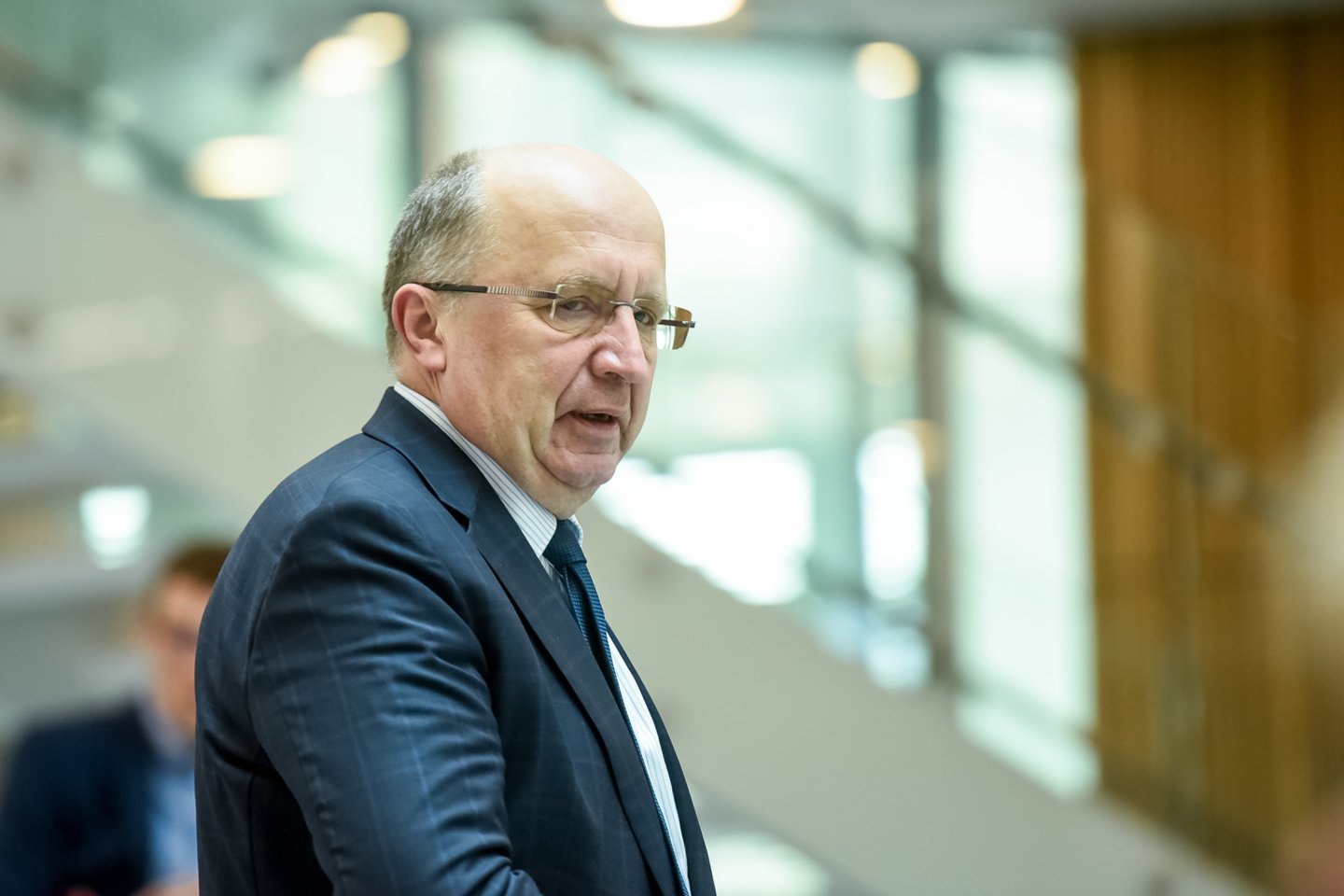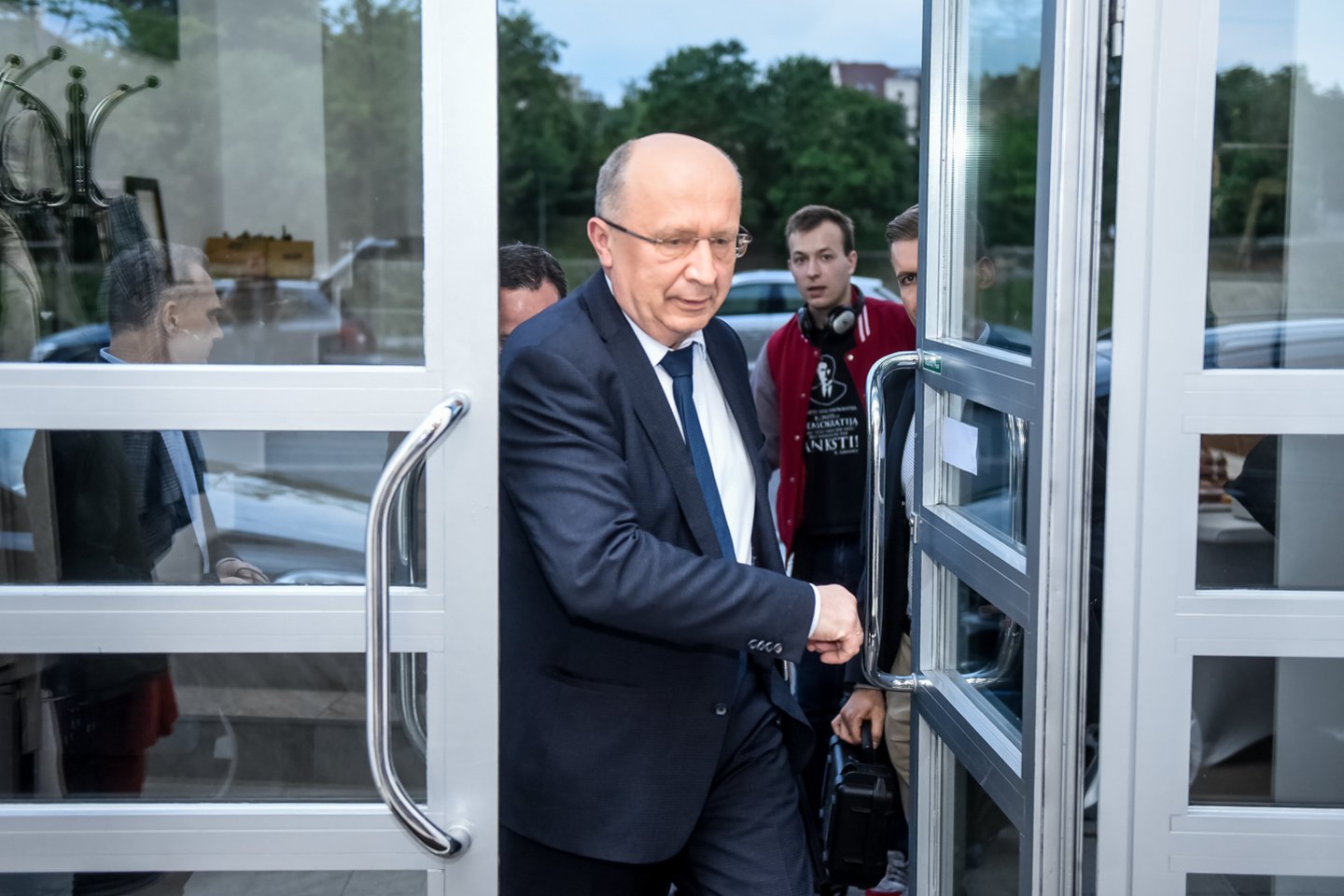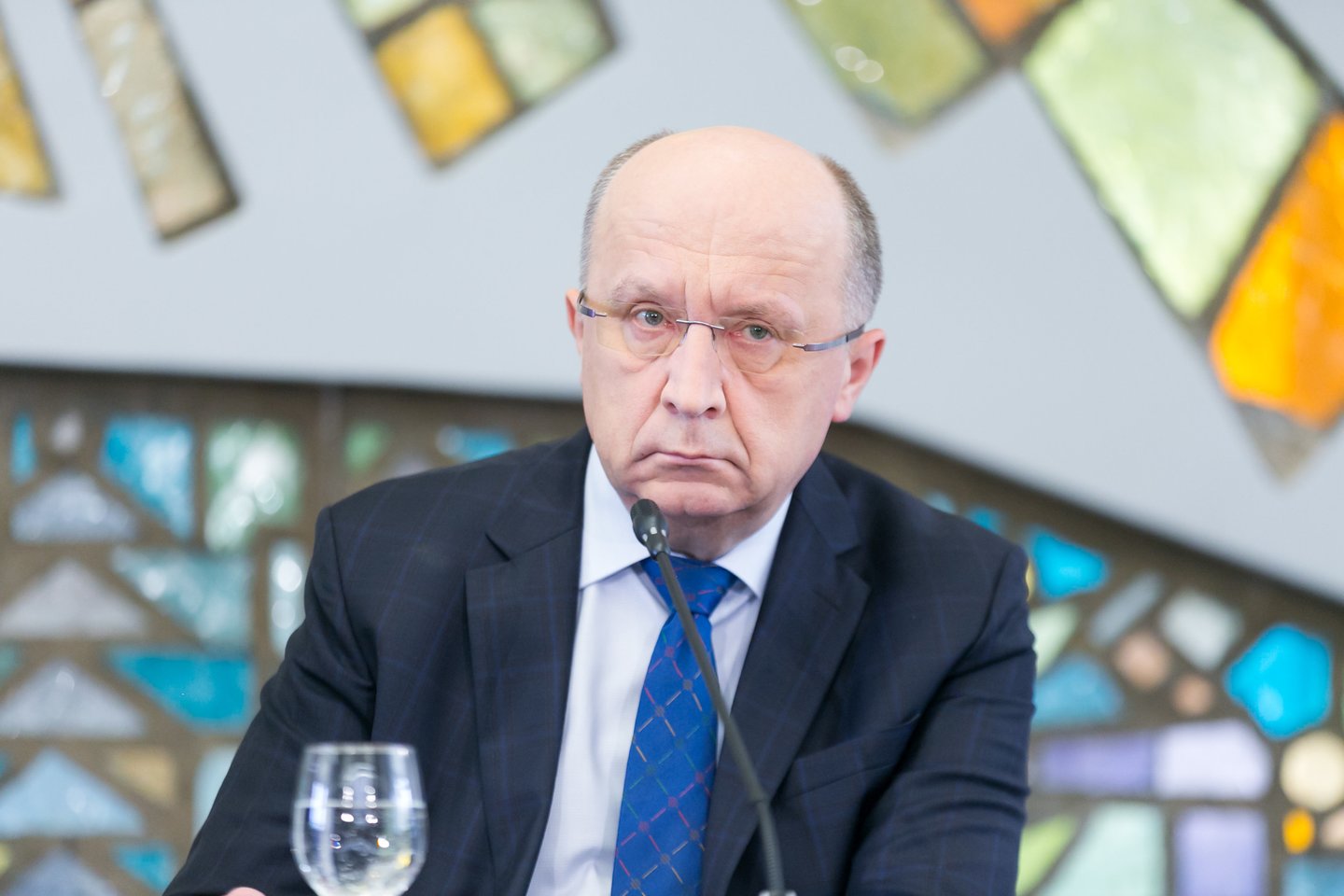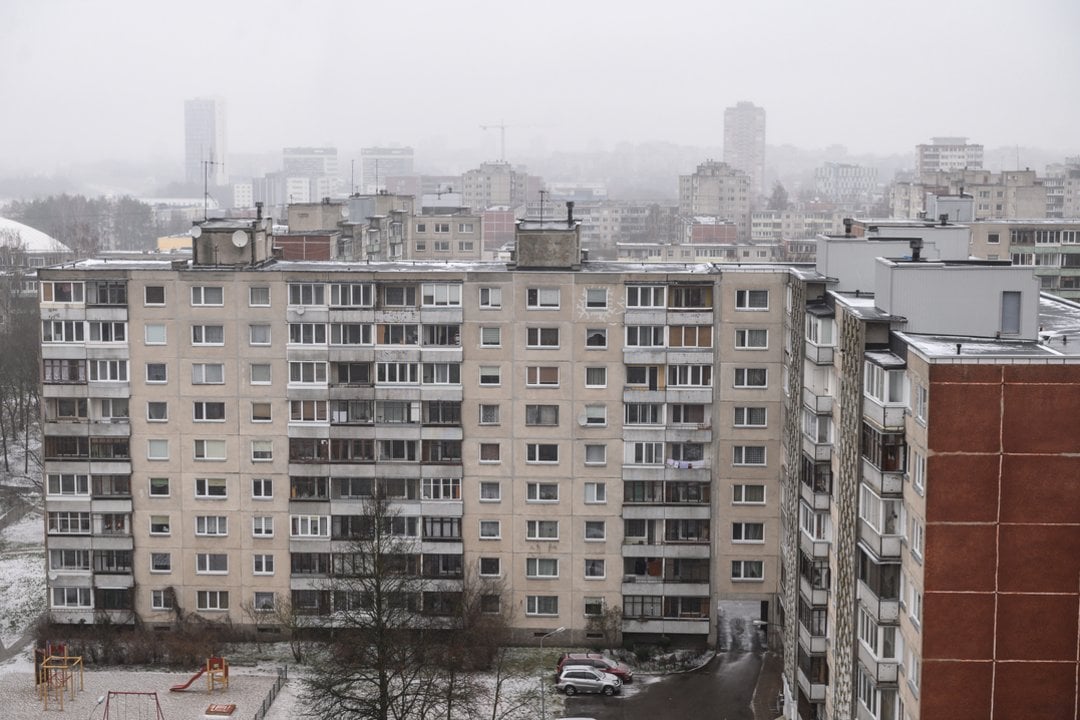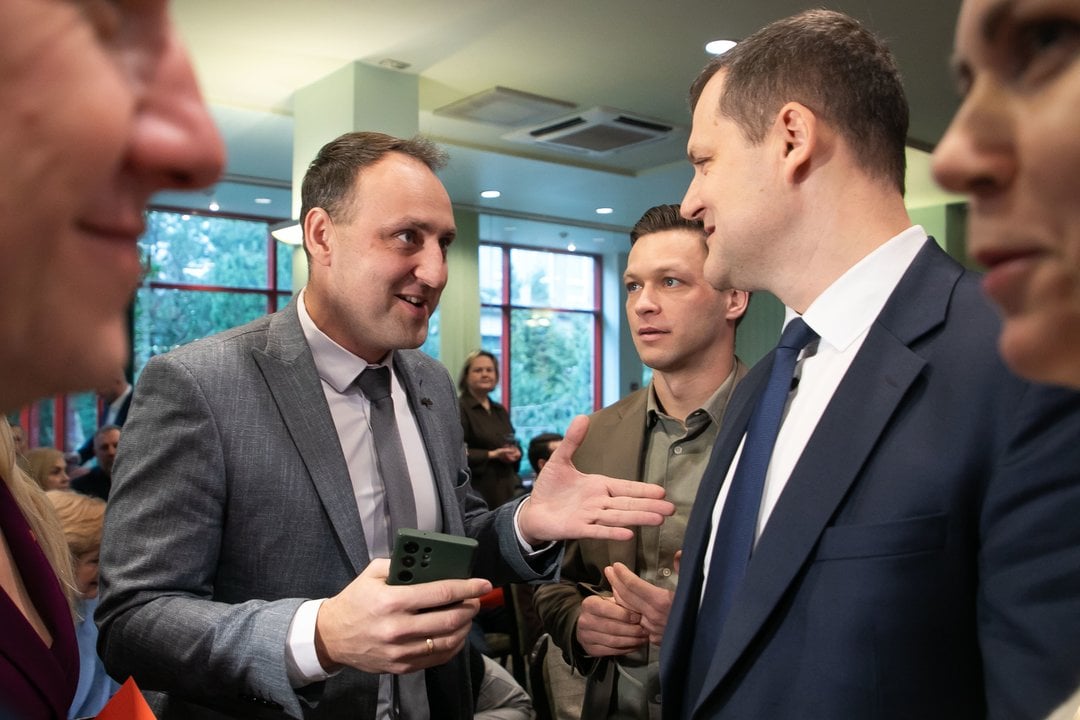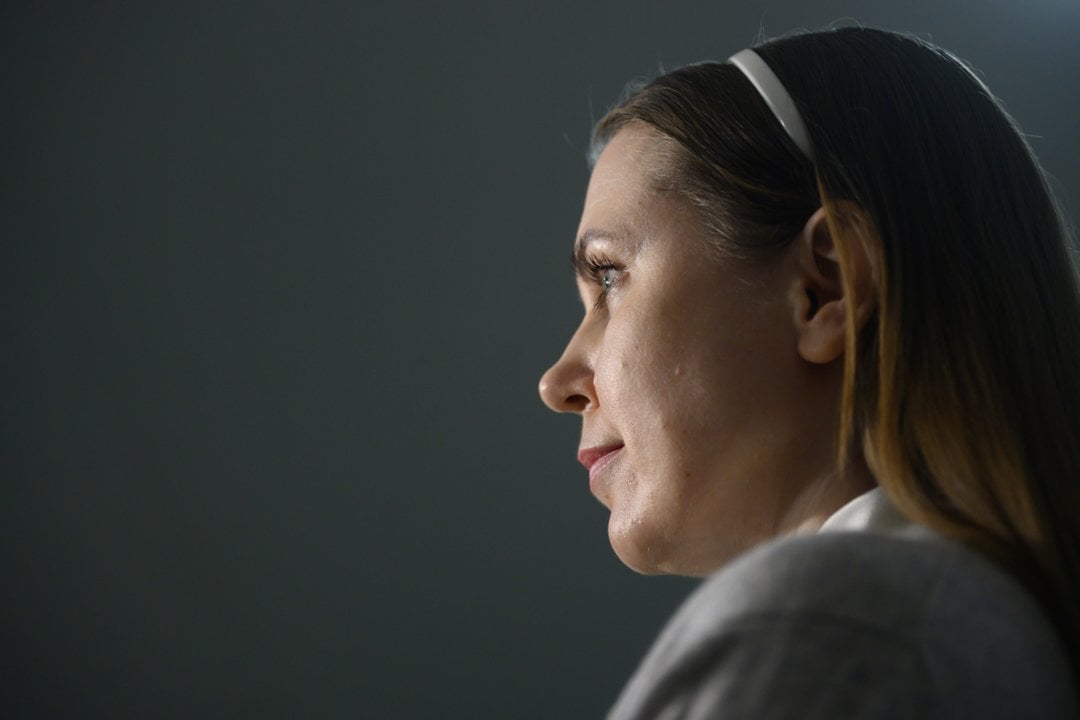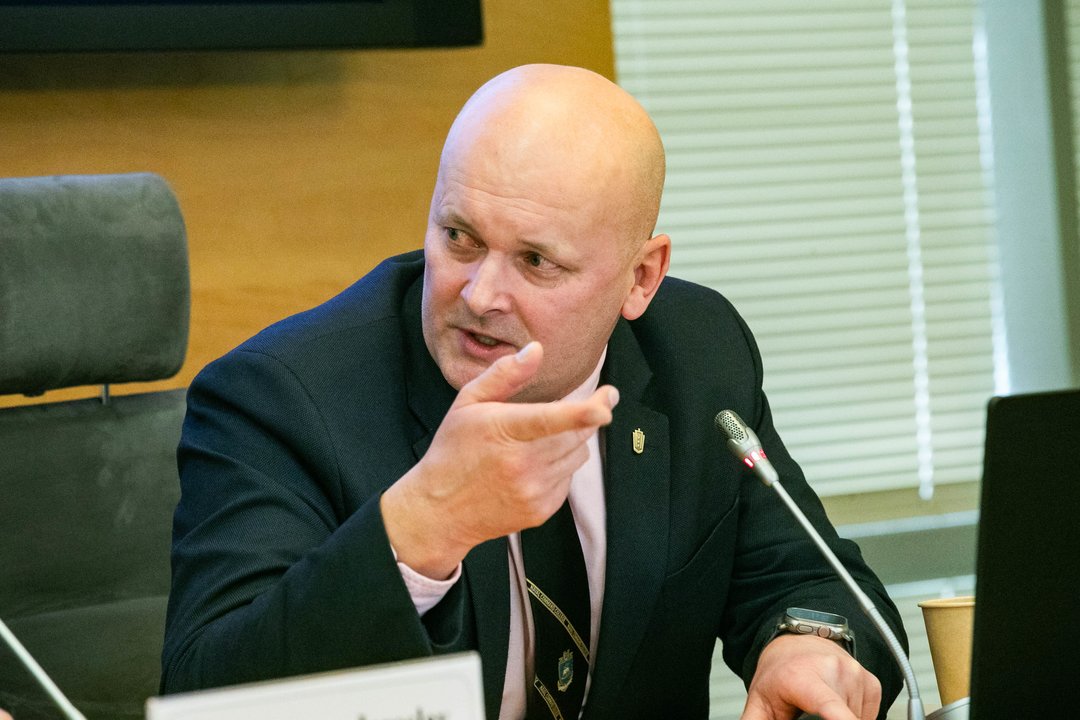The war in Ukraine, launched by Russia on February 24, came as a real shock to the entire democratic world.
The European Parliament (EP) took a political view of the situation by adopting a resolution on March 1, condemning Putin’s aggression and expressing its position on granting Ukraine candidate status for EU membership.
The resolution was voted in favour by an absolute majority of MEPs, with only thirty abstentions out of 700 MEPs, blurring the lines between right-wing and left-wing politicians.
“In private conversations, representatives of Western European countries admit that they were wrong and underestimated the threat of the regime, which we talked about after the Georgian war and the occupation of Crimea,” said Mr Kubilius.
Survey reveals changes
Unbelievably, Putin has united all European democracies by going to war in Ukraine, and it shows very clearly.
MEP Kubilius admitted that he did not believe Putin would start a war. If a person has any rationality, they will not take such a step.
“It has become clear that this man has no rationality left and that he has made a grave personal mistake, which has turned into an international crime,” said Mr Kubilius.
Nevertheless, the outbreak of war in Ukraine did not come as a big surprise to the politician. However, many people in Western Europe have been in for a real shock, and this is reflected in the change of opinion among voters.
The results of polls conducted in France, Italy, Germany, and Poland after the war had already started have recently been published.
“They have revealed a huge change in the way Europeans think,” said Mr Kubilius.
As many as 68% of Germans now support Ukraine’s membership in the European Union (EU), compared to just 31% after the Crimean occupation.
“Europeans support the supply of arms to Ukraine. They support sanctions against Russia, despite the possible increase in energy prices. Europeans strongly support Ukraine and condemn Russia’s actions,” Kubilius said.
The voters will have an impact
According to the MEP, some doubts remain in the minds of some leaders, such as Dutch Prime Minister Mark Rutte, who recently said he was against granting candidate status to Ukraine.
German Chancellor Olaf Scholz opposed a European Council decision that would impose an embargo on oil and gas purchases from Russia. At the same time, French President Emmanuel Macron mused that Ukraine’s EU membership might provoke Russian anger.
“Some leaders have not rid themselves of attitudes that are totally unacceptable to us, but they probably have not yet felt that their electorates are strongly leaning towards Ukraine and towards the values that we have long held,” the MEP believes.
One can only speculate why they are doing so. Perhaps some are genuinely afraid of Putin, perhaps some are worried about a possible sharp rise in energy prices, and the electorate reacting painfully to such a change.
“This is a human and natural reaction, but it is wrong, and the time is coming when Europe’s political leaders will have to change their attitudes,” Kubilius believes.
He suggested following the example of Ukraine’s leadership, as the recent behaviour and speeches of Ukrainian President Volodymyr Zelenskyy would be difficult to match across the EU.
Kubilius believes that Mr Zelensky is a politician with a strong advantage in this situation. The president’s behaviour and the heroism of the Ukrainian people in their fight against the aggressors inevitably influence the attitudes of European political leaders.
World politicians unite
“Ukraine’s EU membership is only a matter of political will,” Kubilius believes.
EU rules do not define which countries can be granted candidate status and which cannot. Once the European Commission (EC) presents its assessment, the Council of Europe has to vote on the candidate by consensus and then obtain the consent of the European Parliament.
Dutch Prime Minister Rutte recently suggested that the EC’s assessment must be lengthy and could take a year or more. On the other hand, EC President Ursula von der Leyen has publicly stated that Ukraine is a member of our family and will be in the EU.
According to MEP Kubilius, the resolution of the issue will be determined by the work of the EC and how the will of Europeans will be heard in the EU institution and in individual countries. The politician would not be surprised if the leaders of the countries that are in doubt come under more pressure from ordinary citizens.
Kubilius and his associates have also taken the initiative on this issue by launching United for Ukraine, an international alliance of parliamentarians worldwide, which could become an effective force when questions or doubts arise.
He would also welcome a decision by Lithuanian politicians to join the common front and help convince wavering politicians to change their minds.
Two key directions
What can the European Parliament do to stop the war in Ukraine?
“Ukrainian victories on the frontline will most effectively stop the war, and to achieve this, they need weapons,” Kubilius believes. While the US and the UK have done more in this area, EU countries struggle to keep up. Lithuania is also on the list and is also supplying arms to Ukraine.
The EU has provided €500 million in military aid to Ukraine and promises to double the amount.
EU sanctions against Russia are another effective measure. Mr Putin must feel that he is losing both on the war front in Ukraine and on the economic front against Western sanctions.
Mr Kubilius believes that it is completely intolerable that the EU is not imposing an embargo on oil, gas, and coal purchases from Russia. This is not only a major political mistake but also a moral one.
Every day, the EU puts more than €600 million into Putin’s pocket, which is the cost of about 400 new tanks. The EU should plug this gap.
“This would be a significant contribution to making Putin, or whoever is next to him, understand that the war must be stopped immediately, just by thinking about Russia’s fate,” said MEP Kubilius.
It is easy to find examples in the history books that the issue of a madman, who is making huge mistakes, somehow gets resolved in such circumstances. On the other hand, Russia is approaching total collapse, and the question is what Russia will look like after the war and after Putin.
“We are constantly contacting the Russian liberal opposition - people who feel responsible for their homeland and think about Russia after Putin. We need to help them in every way to put together a picture of a different Russia with their thoughts and ideas,” said MEP Kubilius.
